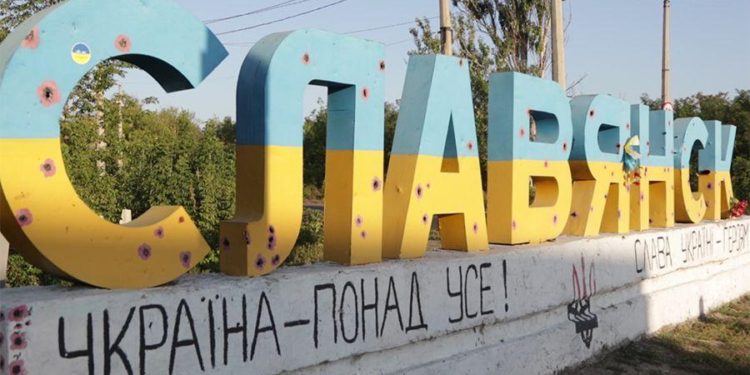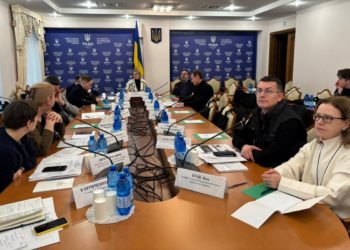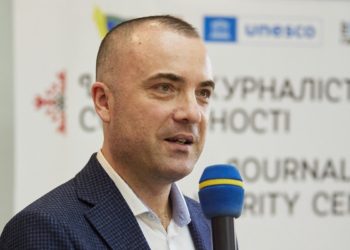After the historic summit in Alaska on August 15, 2025, between U.S. President Donald Trump and russian president Vladimir Putin, the world learned about a “possible plan to end the war in Ukraine.” According to European diplomats, Putin offered Moscow full control over Donbas in exchange for ending the war, and Trump allegedly supported these conditions.
The information service of the National Union of Journalists of Ukraine (NUJU) asked journalists from this Ukrainian region about how the residents of Donbas themselves feel about this idea.
Everyone the Union contacted expressed the most categorical opposition to the very idea of transferring Ukrainian land. And with it, the idea that people can be “transferred” along with the land they live on.
“This is absolutely unacceptable for me, who was born in Donetsk and lived in Donetsk until 2014,” says the First Secretary of the NUJU, Lina Kushch. “This is impossible for me and impossible for many Ukrainians. It is unfortunate that all this is happening against the backdrop of ongoing peace negotiations. We feel that our future is being decided for us. This is unfair and unacceptable. Every time Putin talks about a ceasefire, about peace, there are brutal shellings in our cities with a large number of civilian casualties.”
Vira Iliyina, deputy editor-in-chief of the publication Technopolis from Kramatorsk, compared the situation to the times of serfdom.
“Once, in the century before last, villages were sold along with the population. This was an illustration of the people’s disenfranchisement. I would not like to find myself in a situation now when our region will be handed over to russia,” the journalist noted. “We have already suffered many losses. And for me, for example, it isn’t easy to understand that I will not see the Bakhmut that I knew from childhood, where my grandparents used to live. It is difficult to imagine that everything is destroyed, occupied, and I will never walk along my favorite streets again. And I will not see those trees that my grandfather planted… And now, they are calling on us to do all this and “give up the territories…”

Oleksander Kulbaka, the editor-in-chief of the Visti newspaper from Sloviyansk, calls the idea of ceding territories along with people “medieval.”
“In the Middle Ages, it was so that feudal lords transferred and sold estates to each other along with people. However, that was a long time ago; we are not serfs, but free people. It is not only about territories, it is primarily about people, it is their homes,” says the journalist. “We very much welcomed the position of the President of Ukraine, who said that there would be no such ceding of territories, it is prohibited by the Constitution… After this statement by Volodymyr Zelenskyy, I think his rating in the Donetsk Region increased significantly.”
Journalist of the NUJU information service, Valeriya Muskharina, is even more radical:
“According to Trump’s words about the ‘exchange of territories,’ the lives of hundreds of thousands of people who lost their homes, buried their relatives, and are experiencing occupation and shelling every day are at stake,” she says. “Donbas is not an abstract ‘zone’ on the map that can be redrawn for the sake of political agreements. This is a home where people, despite the pain and destruction, prove that they are not ready to give up their own.”
To talk about the “exchange of territories” means to ignore their voice and devalue the victims suffered by the Ukrainian east, the journalist is convinced. The tragedy of such proposals is that they are born far from reality, but they hurt those who live near the front and protect us on the front line.
According to Valeriya Muskharina, Sloviyansk knows very well what occupation is: back in 2014, russian TV channels were broadcast here, and the streets were hung with flags of fictional “republics.” russia will not stop after occupying the entire region: rather, it will present it as its own victory in the war, and soon it will move on to other Ukrainian cities.
“Our Donbas, our Ukraine cannot be a bargaining chip,” says Valeriya. “No agreement can cross out the right of people to live in their own homes. And no one should decide the fate of my family and thousands of similar families for the sake of the illusion of “quick peace.”
These sentiments are especially strong among residents of the front-line territories, who are directly experiencing the consequences of russian aggression.
“I have been trying, like all people, to hold on for three years… But when these negotiations began, and they started talking about the ceding territories… for me, it was as if the ground was falling from under my feet,” Vera Iliyina conveys her emotions. “Among other things, I do not understand what to do with my property rights… Who will compensate me for the cost of my housing, relatively speaking? What institutions? Who should I contact? russia? Well, that is nonsense. Our Ukrainian authorities?.. At the beginning of 2014, a total of 4.1 million people lived in the Donetsk Region. How many millions will now be left with nothing? Without the prospect of returning home? And without the prospect of getting something in the new realities? Volodymyr Zelenskyy stated that the Constitution of Ukraine prohibits him from giving up any land. In previous statements, he clearly said: “Ukrainians will not give up their land to the occupier.” European leaders backed the Ukrainian president’s position at the talks in Washington. The leaders of the Nordic-Baltic Group of Eight issued a joint statement, confirming their support for Ukraine, stating that “no decisions on Ukraine without Ukraine, and no decisions on Europe without Europe” should be made. Eventually, U.S. President Donald Trump also started talking about this.”

The arguments of the residents of Donbas go far beyond political declarations: they are personal stories of loss, practical problems, and a deep conviction that people cannot be “handed over” along with the land.
“We feel that our future is being decided for us. The future of Europe is being decided for Europe. This is unfair and unacceptable for Ukrainians,” concludes Lina Kushch.
These voices from the front are perhaps the most crucial aspect of the discussion about Ukraine’s future, which should not be overlooked by participants in international negotiations.
Maksym Stepanov
NUJU Information Service

 THE NATIONAL UNION OF
JOURNALISTS OF UKRAINE
THE NATIONAL UNION OF
JOURNALISTS OF UKRAINE
















Discussion about this post